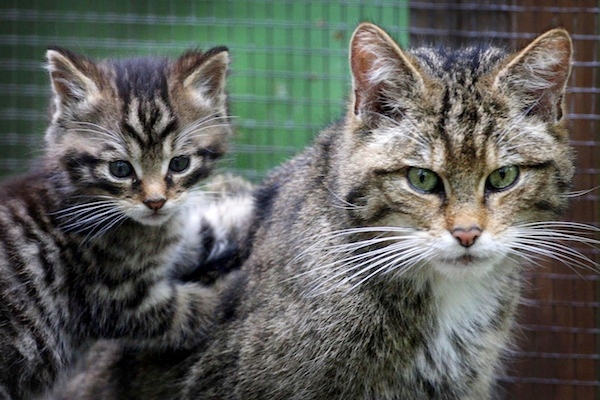The buzzword of the moment seems to be ‘rewilding’. George Monbiot, the Guardian columnist and environmentalist has a new vision for the countryside, which he wrote about in the magazine two weeks ago. Instead of covering our green and pleasant land with sheep, what we ought to be doing, he argues, is re-introducing all of the species which we humans killed off hundreds, if not thousands, of years ago. The process, which he describes as ‘a mass restoration of ecosystems’, would involve repopulating Britain with the elephants, lynx and bison. ‘We live in a shadow land’, he argues in the ‘animated guide’ to rewilding.
But instead of thinking about reintroducing ‘the lost megafauna’ of the UK, shouldn’t we be thinking about the animals which already inhabit our island – and which we’re in grave danger of losing unless we help them out sharpish. Why are we even talking about reintroducing the lynx when our own – and only – wild felid, the Scottish Wildcat, is – according to the experts – only months away from extinction. With an estimated population of under 100 it’s one of the world’s rarest animals, and Britain’s rarest mammal. Earlier this year, Steve Piper of the Scottish Wildcat Association said that ‘2013 will decide whether the wildcat lives or dies’. There’s still time to save the species – but something needs to be done sooner rather than later.
It’s not just in matters of conservation where we as a nation appear to be blind to the problems on our doorstep. When you say the word ‘animal trafficking’, most people automatically think about exotic animals: rhino, tigers, elephants. In May, both the Prince of Wales and the Defra secretary, Owen Paterson, spoke at the Convention on International Trade in Endangered Species of Wild Fauna and Flora, which focused on the illegal trade in ivory, and the poaching of both elephants and rhino in Africa. Of course it is appalling and shocking that, as Paterson pointed out, we ‘are losing a rhino to poachers every 11 hours’, and that 23 tonnes of illegal elephant ivory were seized in 2011. But few of us realise that animal trafficking happens here, too.
Earlier this month, four falcon chicks disappeared from their nest in Staffordshire, in an act that’s being treated as a theft. Although it’s not a common occurrence, it’s far from unknown for baby falcons, or falcon eggs, to be stolen, as there’s still a demand for black market chicks, particularly from falconers from Arab countries.
It’s not just falcons who are at risk though – in May there was a ‘suspected attempt’ to steal Osprey eggs on the Threave Estate in the Scottish Lowlands. And in April of this year, a prison officer from Inverness was charged with the illegal trade of over 2,000 endangered birds’ eggs. His sentence? 220 days of community service.
Of course, paying attention to our local animals doesn’t mean that we should ignore poaching, trafficking and the potential extinction of endangered species in other parts of the world. But it might be worthwhile opening our eyes to the fact that our not-so spectacular or exotic native species aren’t doing all that well, either.







Comments